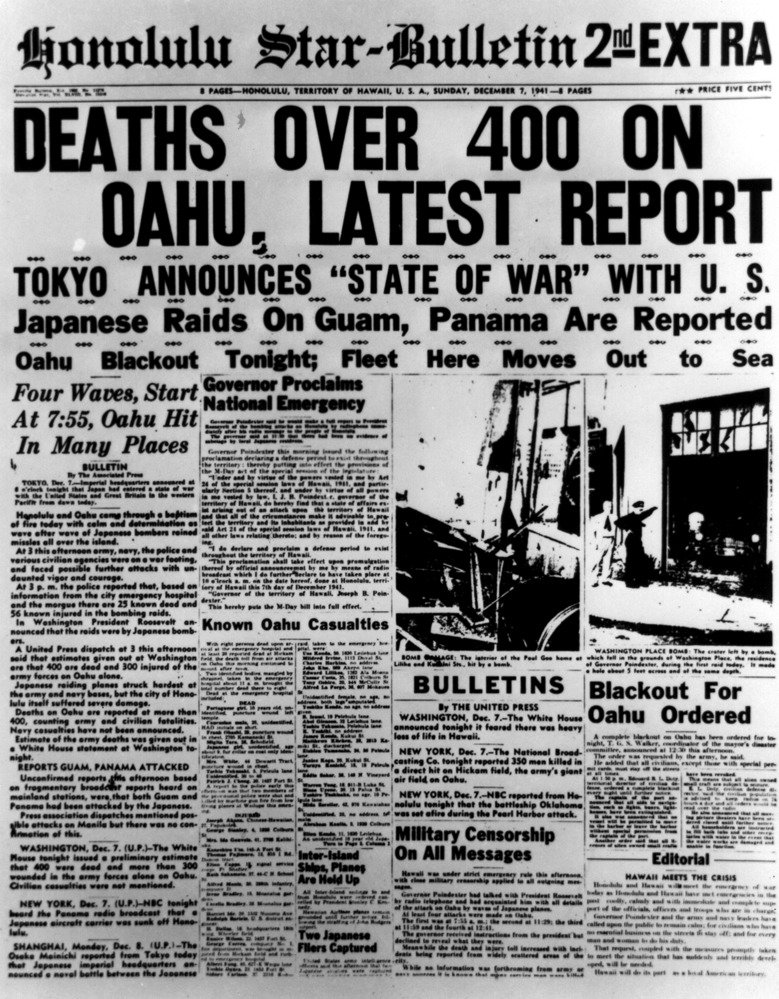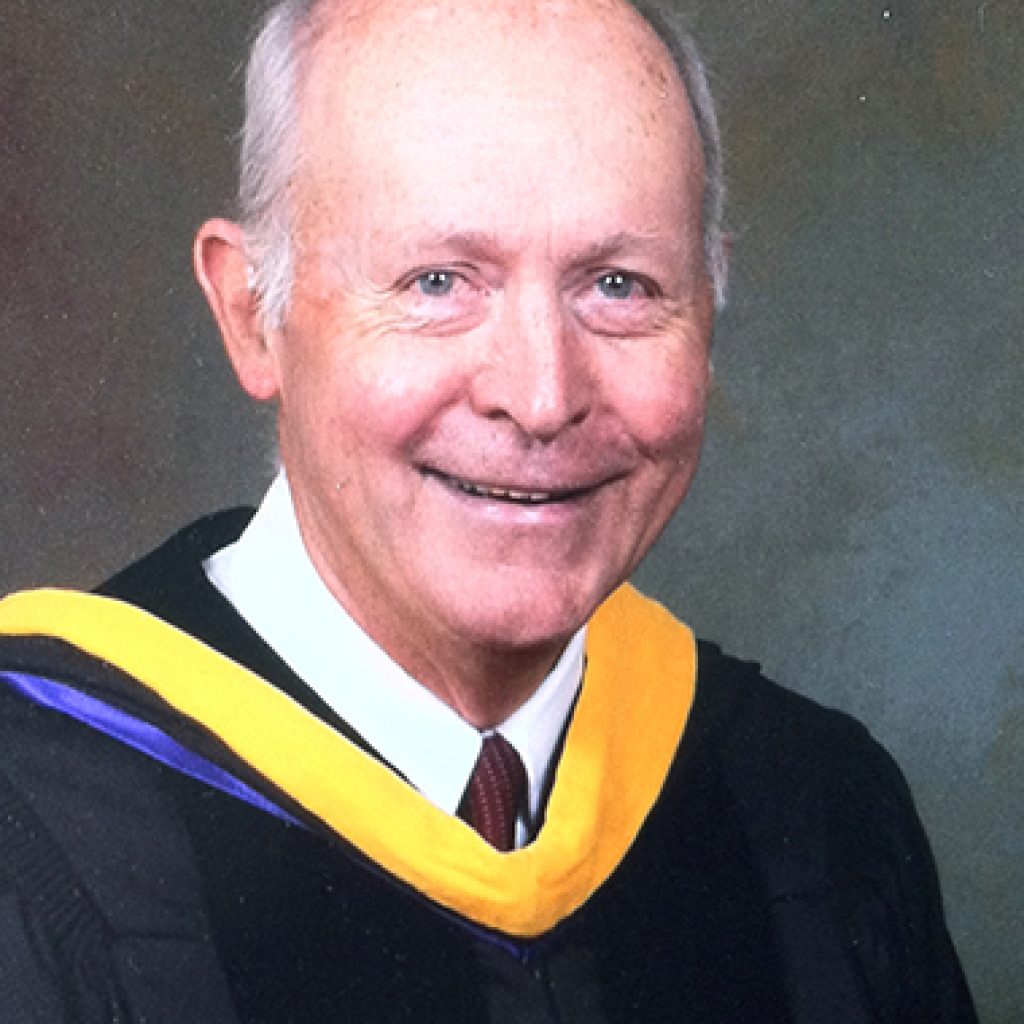Note: Starting today, I will publish an article each month for the Augusta Press. These articles will appear on the first Monday of each month. So here goes with my first one.
Tomorrow, America will mark the 80th anniversary of the Japanese attack Pearl Harbor, Hickam Field and a number of other military targets in the Hawaiian Islands. There is a general consensus among historians that Dec. 7, 1941, was the most important single day for Americans in the 20th century. I was there and witnessed the attack. My memories are quite vivid.
[adrotate banner=”55″]
I was living with my family in Honolulu at that time. From the back of an Army truck, I watched the first wave of the Japanese air attack. My sister and I were on the way to Sunday School that morning—we did not make it there. This story and many others are told in my new memoir, “Listen Up: Stories from Pearl Harbor, Vietnam, The Pentagon, CNN and Beyond.” Autographed copies of this book are available at discount at the Augusta Museum of History.

After becoming an adult, I studied the attack on Pearl Harbor with the idea of drawing some lessons from an event that shaped my life and the lives of so many others. When I conduct workshops on executive leadership, I make the following points. From the Japanese perspective, the attack was a success at the tactical level, only a modest success at the operational level and a major failure at the strategic level.
Tactically, everything went well for the Japanese. The Americans were caught by surprise. Dozens of American ships and hundreds of aircraft were destroyed or badly damaged. The Japanese lost no capital ships. They sailed home in triumph.
At the operational level, the attack was less successful. No American aircraft carriers were struck (all of the American aircraft carriers were out to sea) The oil supplies were not targeted, nor were the American drydock facilities.
At the strategic level, the attack was a colossal failure. The Americans got very angry, became unified in a common cause, and created the “Arsenal of Democracy.” In less than four years, three fascist nations were destroyed, including the Japanese Empire. In addition, American postwar planning during World War II is a great success story. In the years following the war, Germany, Japan and Italy became working democracies.

As I emphasize in my leadership workshops, decisions that do not take into account medium and long-term goals often fail. The most successful leaders are those who maintain a strategic perspective. Two great questions to ask during the decision-making process are, “What are the long-term implications?” and “How does this decision fit within our strategic plan?”
In future articles for the Augusta Press, I will present the three aspects of my Pearl Harbor experience. Memoires of the attack itself, our family’s evacuation from Hawaii (when lives were rationed) and my first public speech at age seven in Saint Cloud, Minn.
Tomorrow (Dec. 7) from noon to 2 p.m. at the Augusta Museum of History, I will be signing and personalizing three books. My memoir, my leadership book (“Rules and Tools for Leaders”) and my book on my wife’s father (“Courage, Compassion, Marine: The Unique Story of Jimmie Dyess”). All books will be sold at discount. Also, all proceeds will go to the museum in support of the upcoming Jimmie Dyess Symposium. I hope to see you there tomorrow. If you have any questions on Pearl Harbor, I will try to answer them.

Perry Smith invites comments and criticisms about his articles. His email address is genpsmith@aol.com.
Perry M. Smith, Jr is a teacher, speaker, TV and radio commentator and best-selling author. Hundreds of millions of television viewers world-wide came to know him during the 1991 Persian Gulf War for his more than 100 appearances as a military analyst for the Cable News Network, the PBS NewsHour and NBC TV.
A retired major general, Smith served for 30 years in the U. S. Air Force. During his career he had a number of leadership experiences, including command of the F-15 fighter wing at Bitburg, Germany where he provided leadership to 4,000 personnel. Later, he served as the top Air Force planner and as the commandant of the National War College. He flew 180 combat missions in the F-4D aircraft over North Vietnam and Laos during the Vietnam War.
A graduate of the U. S. Military Academy at West Point, he later earned a Ph.D. in International Relations from Columbia University. His dissertation earned the Helen Dwight Reid Award from the American Political Science Association. At West Point, he played on the varsity lacrosse team—earning All American honors (second team) his senior year.
[adrotate banner=”15″]
Smith’s published books include Rules and Tools for Leaders, Assignment Pentagon, and Courage, Compassion, Marine: The Unique Story of Jimmie Dyess. After Smith was interviewed on the Today Show, Rules and Tools for Leaders reached #2 on the amazon.com bestseller list. Now in its 4th edition, this book has passed the 350,000 mark.
Smith was the executive producer of four videos: Twice a Hero: The Jimmie Dyess Story, When Duty Calls: The Life and Legacy of Don Holleder, Flying Combat with the Triple Nickel and Hervey M Cleckley: A Man for all Seasons.
In 2016, The General Perry Smith Parkway near the Augusta Regional Airport was opened. On October 9th, 2021 in Atlanta, Smith was inducted into the Georgia Aviation Hall of Fame.
His memoir, Listen Up: Stories of Pearl Harbor, Vietnam, the Pentagon, CNN and Beyond was published in January, 2021.
Smith is married to the former Connor Cleckley Dyess, the daughter of Marine Lt. Col. Jimmie Dyess, the only person to have earned America’s two highest awards for heroism. The Smith’s have two children, McCoy and Serena, and four grandchildren, Dyess, Porter, Perry IV and Jacob.
Debbie Reddin van Tuyll is Editor-in-chief of The Augusta Press. Reach her at debbie@theaugustapress.com








